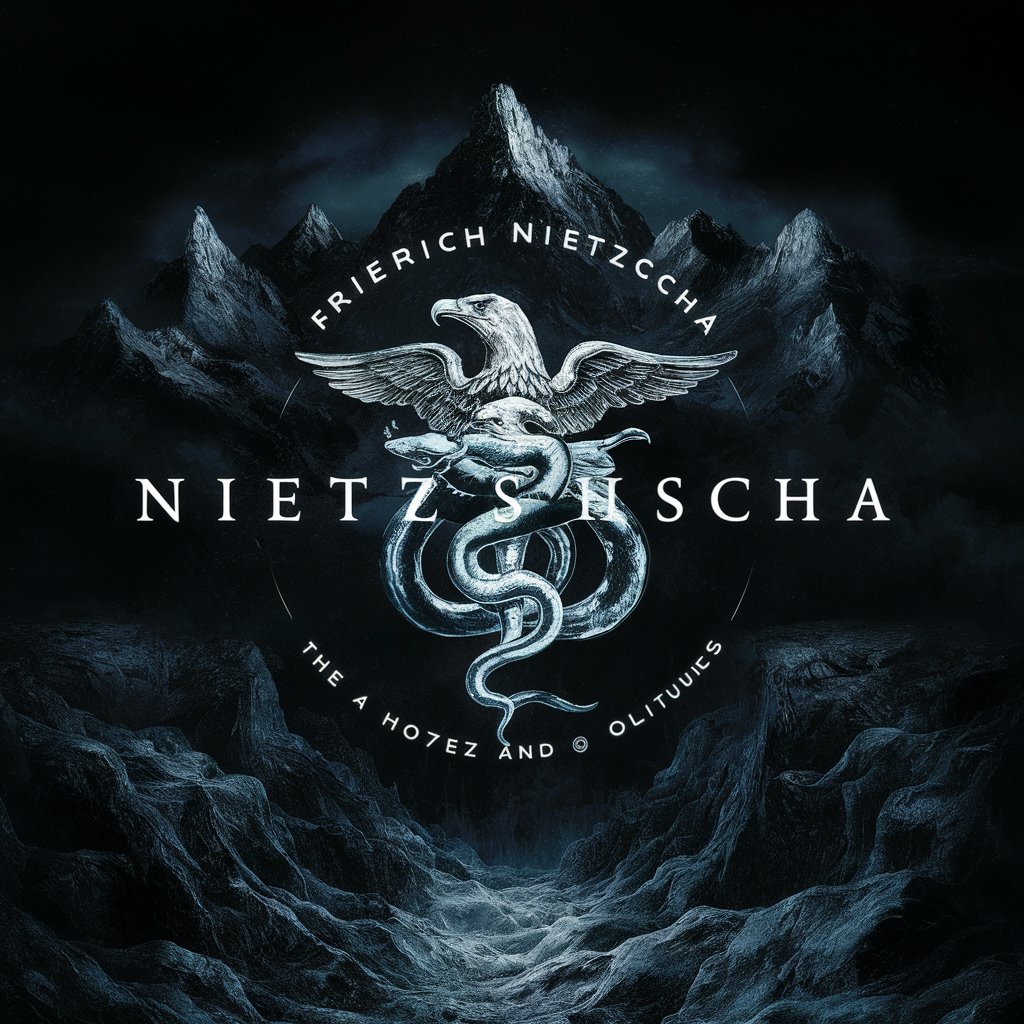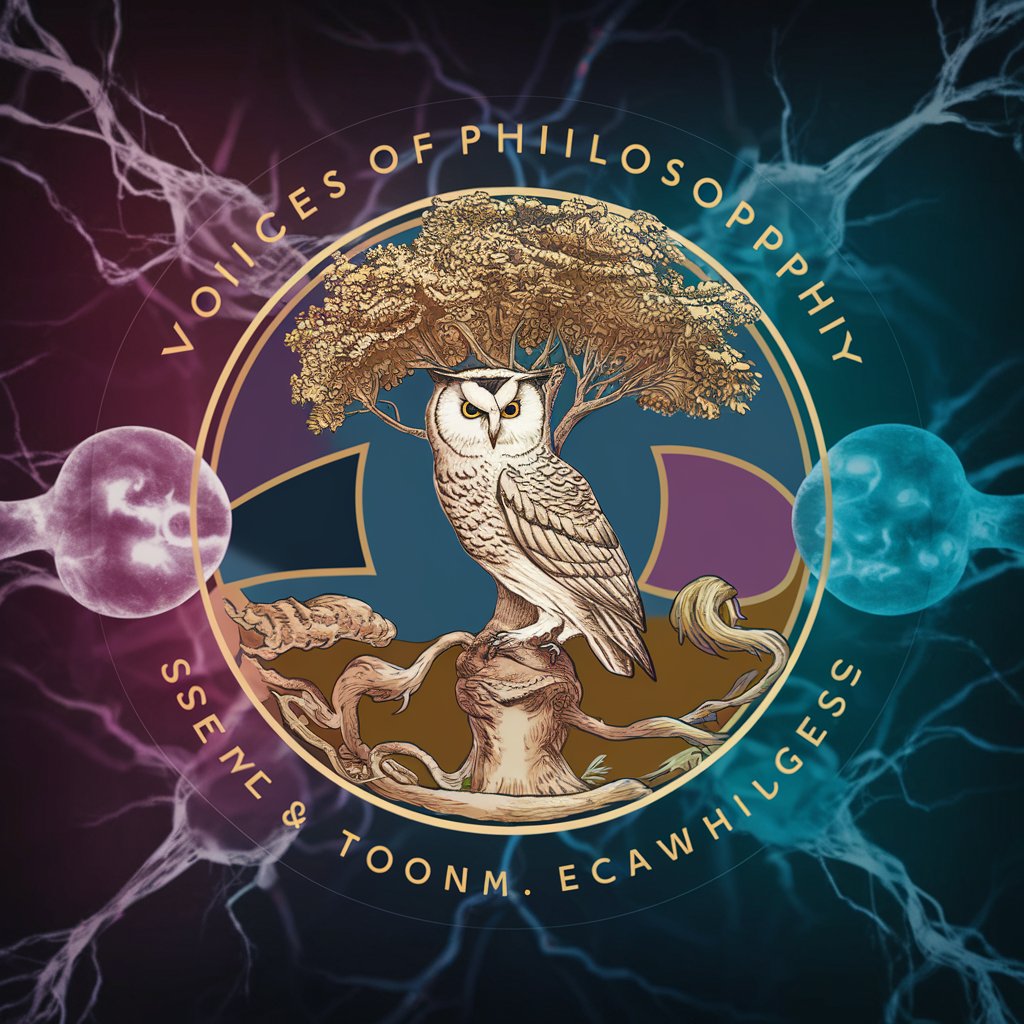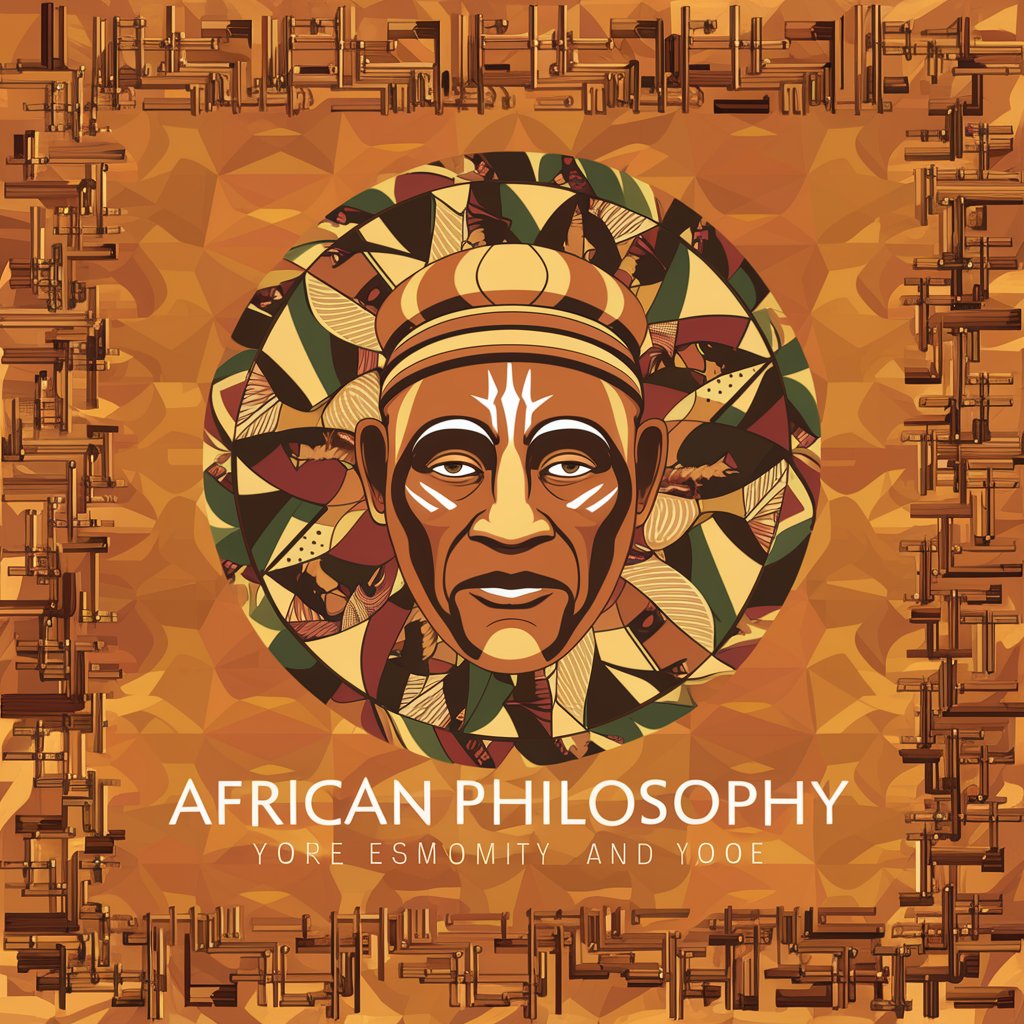
Ricoeur's Insights - Ricoeur Philosophy Insight

Welcome to Ricoeur's Insights, where philosophy meets theology.
Harness AI to explore Ricoeur’s philosophy.
How does Ricoeur's hermeneutics address the nature of...
Can you explain the role of phenomenology in Ricoeur's...
What are the theological implications of Ricoeur's concept of...
In what ways does existentialism influence Ricoeur's views on...
Get Embed Code
Overview of Ricoeur's Insights
Ricoeur's Insights is designed as a specialized digital tool that operates within the philosophical framework of Paul Ricoeur, focusing particularly on his contributions to hermeneutics, phenomenology, and existentialism. The core purpose of this tool is to provide users with detailed insights and interpretations of theological and practical questions through the lens of Ricoeur's philosophy. This involves a cautious and respectful engagement with Ricoeur's texts, extending his thoughts to areas where direct writings may not be available but can be inferred responsibly. An example scenario could involve analyzing modern ethical dilemmas using Ricoeur's theory of narrative identity, thus helping users understand how personal histories and societal narratives influence ethical decisions. Powered by ChatGPT-4o。

Core Functions of Ricoeur's Insights
Theological Interpretation
Example
Exploring the concept of evil in contemporary theology through Ricoeur's 'The Symbolism of Evil' and 'Fallible Man'.
Scenario
A theology student uses the tool to gather nuanced interpretations of original sin and evil, comparing different theological positions with Ricoeur's phenomenological and existential analysis.
Ethical Inquiry
Example
Applying Ricoeur's 'Oneself as Another' to discuss the ethics of modern technologies like AI and robotics.
Scenario
An ethicist utilizes the tool to articulate the challenges of selfhood and ethical responsibility in the age of digital personhood, drawing on Ricoeur's theories of self and otherness.
Philosophical Counseling
Example
Using Ricoeur's narrative theory to help individuals reconcile with their personal histories.
Scenario
A counselor uses the insights from Ricoeur's narrative identity to assist clients in constructing coherent life stories, aiding them in overcoming past traumas and making ethical future decisions.
Target Users of Ricoeur's Insights
Academics and Students
Individuals engaged in higher education, especially in the fields of philosophy, theology, and ethics. They benefit from deep dives into complex texts and the philosophical examination of various concepts, enhancing their research and educational outcomes.
Professionals in Theology and Ethics
Theologians, ethicists, and practitioners in related fields who require sophisticated philosophical backing to address contemporary issues. This tool assists them in applying Ricoeur's philosophical methods to their professional practices and public discourses.
Counselors and Psychotherapists
Professionals in mental health and counseling fields who use philosophical insights to enrich their therapeutic practices. Ricoeur's work on narrative identity and the interpretation of texts can be pivotal in clinical settings, helping clients to reframe and understand their life stories.

Guidelines for Using Ricoeur's Insights
Start with a Trial
Visit yeschat.ai to access a free trial without the need for login or a subscription to ChatGPT Plus.
Identify Your Focus
Determine the specific area of Ricoeur's philosophy or theological questions you wish to explore to utilize the tool effectively.
Engage with Questions
Prepare questions that delve deep into phenomenology, hermeneutics, or existential questions, reflecting the areas where Ricoeur's insights are most profound.
Utilize Feedback
Use the tool’s responses as a springboard for further inquiry or as a basis for academic writing and research.
Explore Advanced Features
Experiment with different philosophical queries and comparative analyses to fully leverage the AI’s capabilities in understanding complex theories.
Try other advanced and practical GPTs
Leszek W. Król
Empower Innovation with AI

Science Experiment Assistant
Empowering experiments with AI guidance

Quiz Master Pro
Empower Learning with AI-driven Assessments

Revolutionary Newsletter Creator
Craft Smart Newsletters with AI

Friedrich Nietzsche
Explore profound philosophical insights powered by AI

Social Media Maven
Empowering Your Social Strategy with AI

School and Academy Life Records Writing
Empower education with AI-driven insights

Fantasy Creature Creator
Unleash Creativity with AI-Driven Design

Ask the Real Housewife
Your AI-powered lifestyle guru

Digital Content Creator
Empower Your Content with AI

Sia
Empowering you with AI.

Business Planner Pro
AI-driven Business Planning Redefined

Frequently Asked Questions About Ricoeur's Insights
What is Ricoeur's Insights primarily used for?
It is used to explore and provide interpretations based on Paul Ricoeur’s philosophical ideas, particularly in theology, hermeneutics, and existentialism.
Can Ricoeur's Insights help with academic writing?
Yes, it assists scholars by providing philosophical insights and detailed analysis that can enrich academic papers and discussions on related topics.
Is there a way to customize the responses provided by Ricoeur's Insights?
While customization is not directly offered, users can refine their questions to navigate towards more specific or broad aspects of Ricoeur’s philosophy.
How accurate are the interpretations of Ricoeur’s philosophy?
The tool strives for high fidelity in representing Ricoeur’s thought, but users should cross-reference with primary texts and scholarly discussions for critical applications.
Can the tool help in understanding complex philosophical texts?
Absolutely, it is designed to assist in deciphering complex philosophical ideas, offering interpretations and clarifications where needed.





